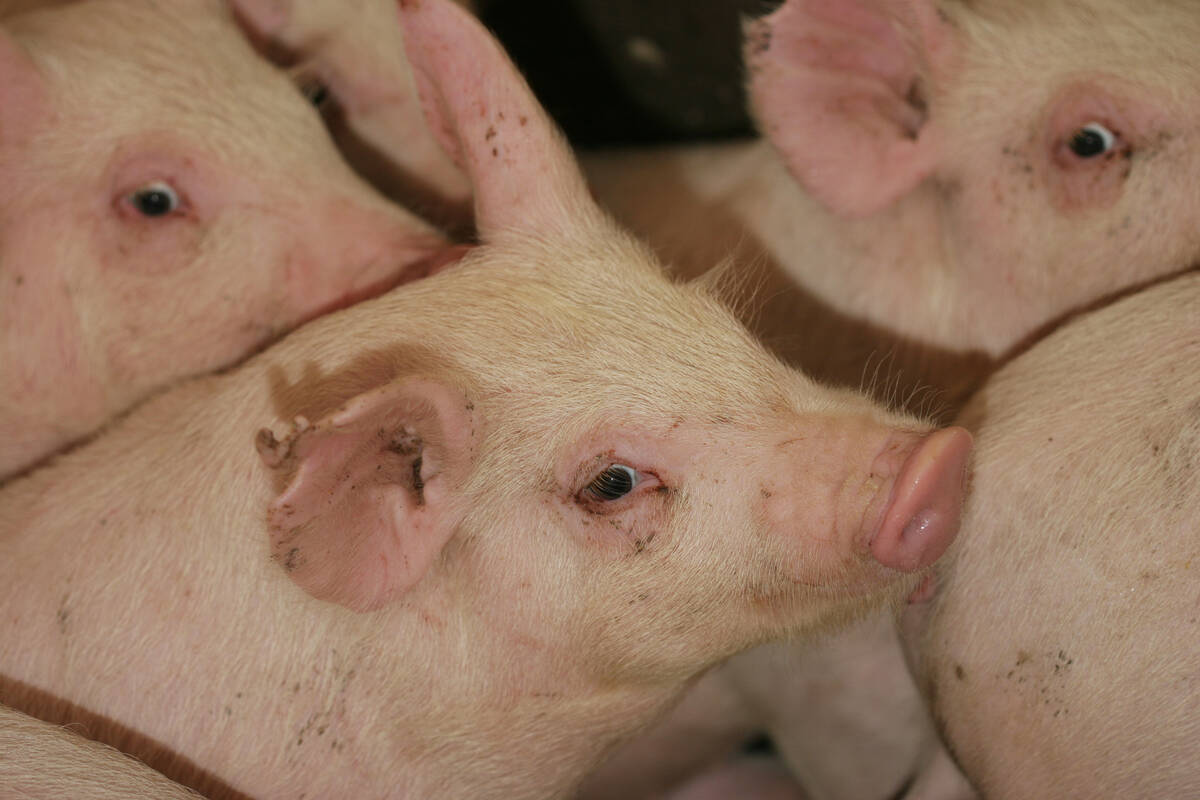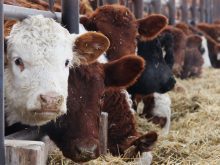KRONAU, Sask. – After 13 years in the sheep business, Dallas Turner is ready for a break.
He figures the easiest way to do that is to sell his entire purebred flock.
“I’m temporarily getting out,” he said last week while waiting for shearers to arrive at his farm southeast of Regina. “I want to free up some time, do a little travelling.”
The employee of McDougall Auctioneers in Regina doesn’t have a particular destination in mind, and it sounds like it might not be so easy to leave the world of sheep showing behind him.
Read Also

The Western Producer Livestock Report – September 25, 2025
The U.S. national live price average for barrows and gilts was $81.21 Sept. 17. It was $78.37 Sept. 9. U.S. hogs averaged $106.71 on a carcass basis Sept. 17, up from $106.10 Sept. 9.
He and his late wife, Elaine, started in 1995 with commercial sheep but soon became one of two registered North Country Cheviot breeders in the province. The farm also has a few Texels.
Turner’s 90 ewes and lambs are up for sale, but he will take four head to the Canadian Classic show in Ilderton, Ont., in July. In the past, he has also shown at Yorkton, Sask., Virden, Man., and the provincial show in Drake, Sask.
“I may still have some for Agribition,” he added. But as he moves on, even if only temporarily, Turner has advice for producers.
“People in the industry need to understand more of what they’ve got,” he said.
Learning how to properly feed sheep is key. He said the nutritional requirements of an eight-month-old ewe are much different than those of a three-year-old, and gestational needs must also be met.
“Producers can’t just feed sheep anything and expect them to do well, and they can’t just put them out on pasture and leave them,” he said.
“Sheep are a little bit more work.”
Shearing, vaccinating and hoof care are required, and the issue of predators looms large.
“Coyotes are holding back the growth of the sheep industry,” said Turner, who is vice-president of the Saskatchewan Sheep Breeders Association.
He uses Akbash guard dogs on his small acreage and has few problems. Others aren’t so lucky, however, and changes to gun laws have restricted how quickly and easily coyotes can be dealt with.
Turner said more producers could join the industry if coyotes could be better controlled. There aren’t enough producers to meet Canadian demand for the meat.
Sheep farmers also need to better understand why they should participate in the national scrapie flock certification program, he said.
Canadian and American female breeding stock can be imported or exported only from one scrapie-resistant farm to another, yet he estimated only 50 producers in Canada are participating in the program and following the criteria to establish themselves as certified scrapie-free.
“Sheep farmers in Canada don’t understand it,” he said. “They will get caught up in that.”
Turner added that producers must be more involved in their industry. Many complain, he added, but they don’t take the opportunity to get involved and take advantage of educational opportunities.
“They should be in the loop,” he said. “A hundred sheep is a nice little profit centre.”















